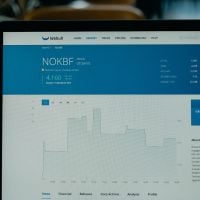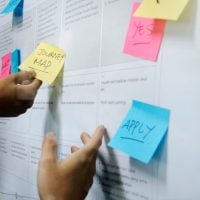Deadline: 19 June 2019
Applications are open for LIFE Environmental Governance and Information with an aim specifically at contributing to the development and implementation of EU environmental policy and legislation. Projects financed must have a European added value and be complementary to actions that can be financed under other EU funds during the period 2014-2020.
Objectives
The specific objectives of the priority area LIFE Environmental Governance and Information are:
- to promote awareness raising on environmental matters, including generating public and stakeholder support of Union policy-making in the field of the environment, and to promote knowledge on sustainable development and new patterns for sustainable consumption;
- to support communication, management, and dissemination of information in the field of the environment, and to facilitate knowledge sharing on successful environmental solutions and practice, including by developing cooperation platforms among stakeholders and training;
- to promote and contribute to more effective compliance with and enforcement of Union environmental legislation, in particular by promoting the development and dissemination of best practices and policy approaches;
- to promote better environmental governance by broadening stakeholder involvement, including NGOs, in consultation on and implementation of policy.
Thematic Priorities
The thematic priorities for LIFE Environmental Governance and Information are implemented through the project topics defined in the LIFE multiannual work programme for 2018-2020 (MAWP), which are the following:
- Thematic priority for Information, communication and awareness raising campaigns:
- Raising awareness on environmental problems, EU environmental policies, tools and/or legislation among the relevant target audiences, aiming to change their perceptions and fostering the adoption of environmentally friendly behaviours and practices and/or direct citizen’s engagement.
- The environmental problems, EU environmental policies, tools and/or legislation targeted should be directly linked to one or more of the themes listed below the following three priorities:
- Green growth:
- sustainable consumption with a focus on waste prevention, in particular plastic waste, food waste and marine litter,
- transition to circular economy, in particular implementation of sustainable business models, sustainable production, products and services.
- Connecting with citizens:
- Natura 2000 and the benefits of the implementation of the European nature legislation, in line with the action plan on nature, people and the economy,
- invasive alien species,
- safe use of chemicals,
- benefits of nature including green infrastructure and related ecosystem services.
- Making it happen:
- air quality in urban areas and its health effects, and/or
- benefits of the implementation of water legislation.
- Green growth:
- Thematic priority for Activities in support of effective control process as well as measures to promote compliance:
- Improving environmental information systems operated by public authorities for electronically collecting, processing, storing and sharing environmental information, by developing and providing new or, where available, enhancing existing systems.
- Improving the capacity and quality of public administration in relation to plans, programmes, analyses, reviews and assessments and/or to permits, derogations, and other decisions on specific activities, where appropriate also in partnership with private entities, with a view to reducing administrative burden while optimising environmental outcomes and integrating, where appropriate, nature conservation.
- Development, promotion, implementation and/or harmonisation of one or more of the following voluntary approaches and their use by entities aiming at reducing impact on the environment of their activities, products and services:
- third-party verification of the performance of innovative technologies when they are ready for the market such as Environmental Technology Verification (ETV),
- environmental footprint category rules (PEFCR) and/or organisation environmental footprint sectoral rules (OEFSR) at European level for products and sectors not yet covered by the existing PEFCRs/OEFSRs and related high quality databases,
- actions, services, networks and new business models for fostering the use of remanufactured, repaired, refurbished and/or reused products also linked to product durability and planned obsolescence, and/or for fostering the use of officially recognised ecolabels such as the EU Ecolabel,
- common tender specifications and/or uptake monitoring tools for public authorities with similar purchasing needs in order to foster the uptake of Green and Circular Public Procurement,
- linking regulatory, financial or reputational incentives to environmental performance by using EMAS,
- assessment of the environmental performance of buildings using the building framework with core indicators.
Eligibility Criteria
Anyone registered in the EU can make a proposal for LIFE traditional, integrated, preparatory, and technical assistance projects under the sub-programmes for environment.
Applicants could be a:
- public body operating under a national government’s authority, e.g. local authority, national administration etc.
- private commercial organisation
- private non-commercial organisation (NGOs etc.)
How to Apply
Interested applicants can apply via given website.
For more information, please visit https://ec.europa.eu/easme/en/section/life/2019-life-call-proposals-traditional-projects-environmental-governance-information









































